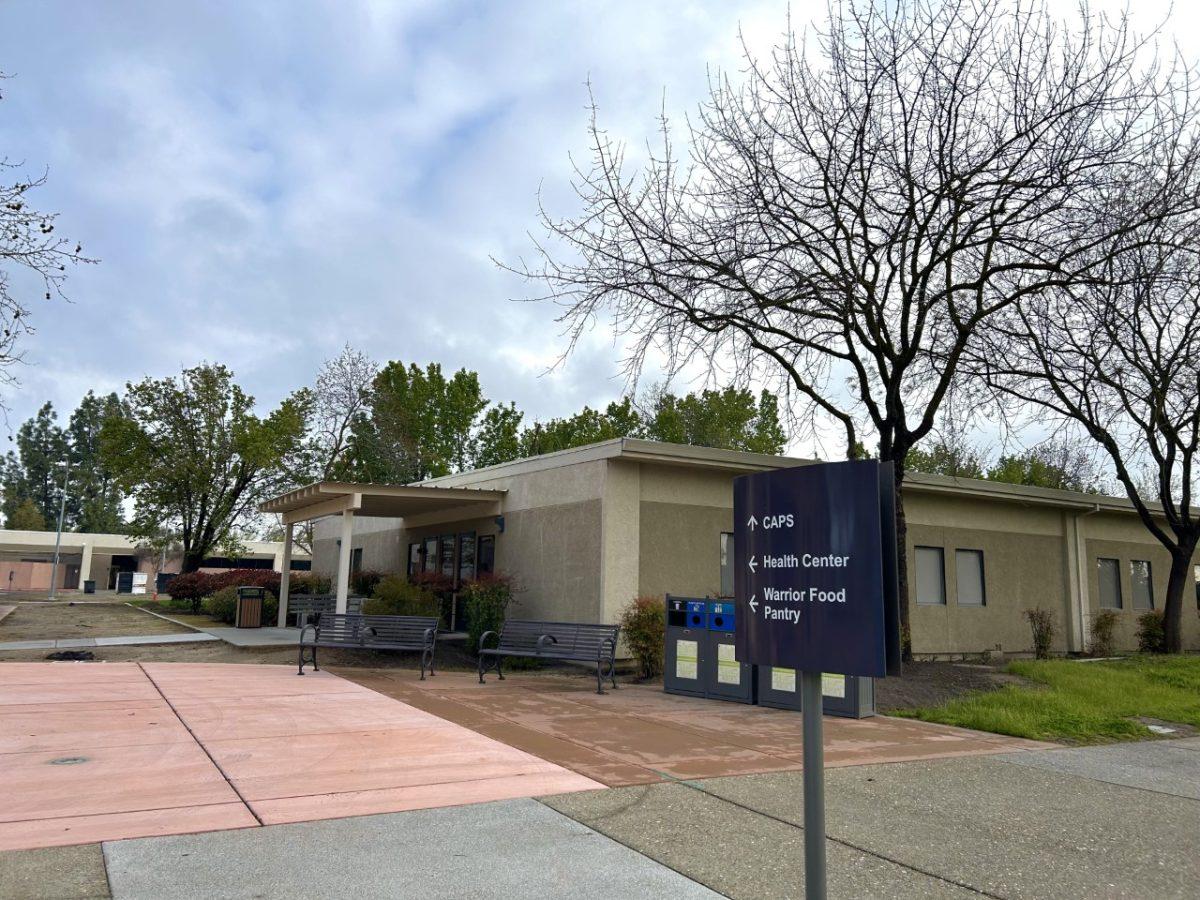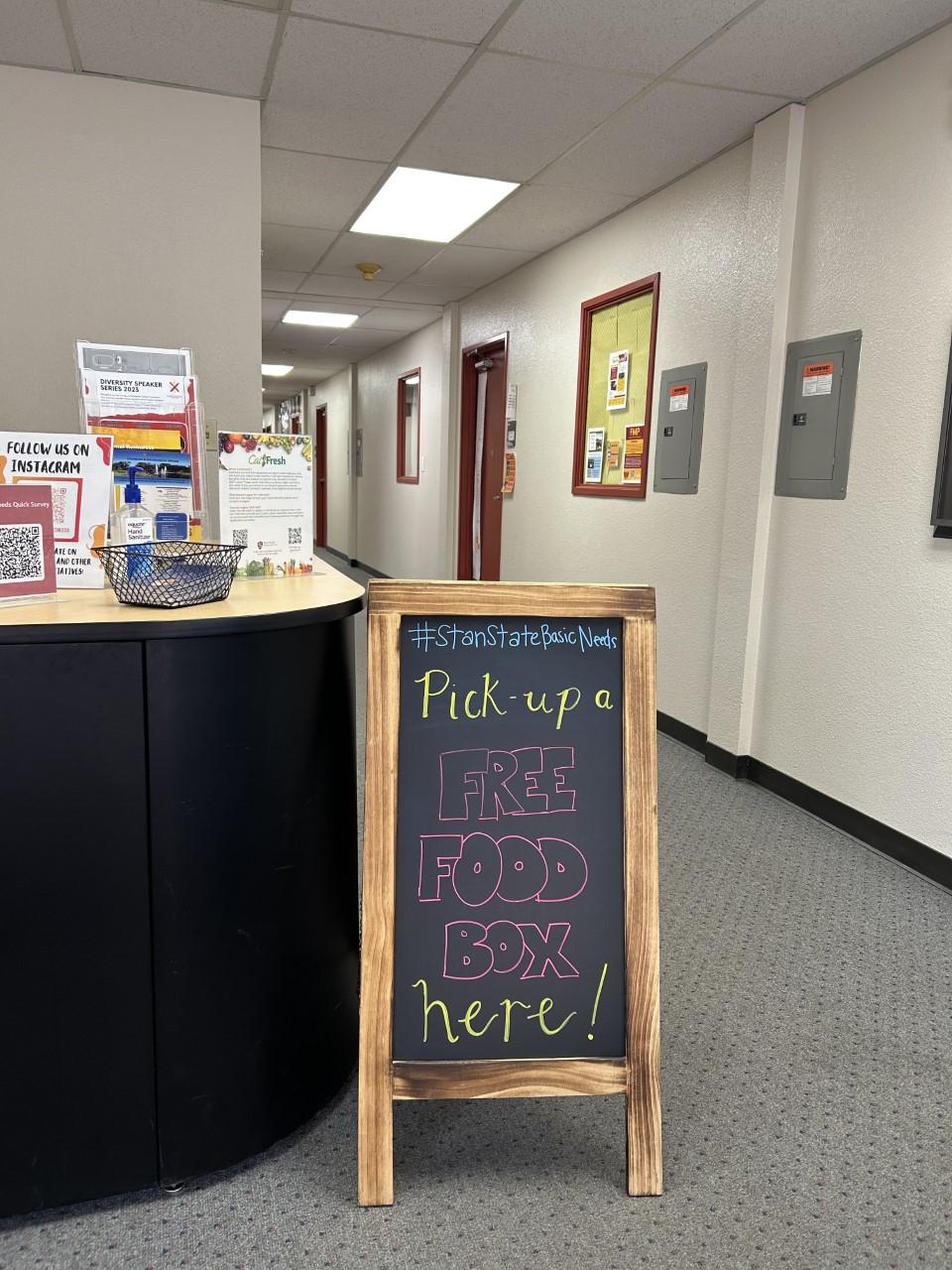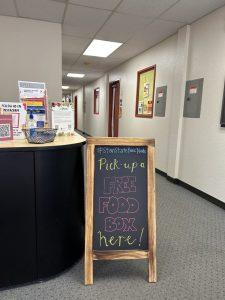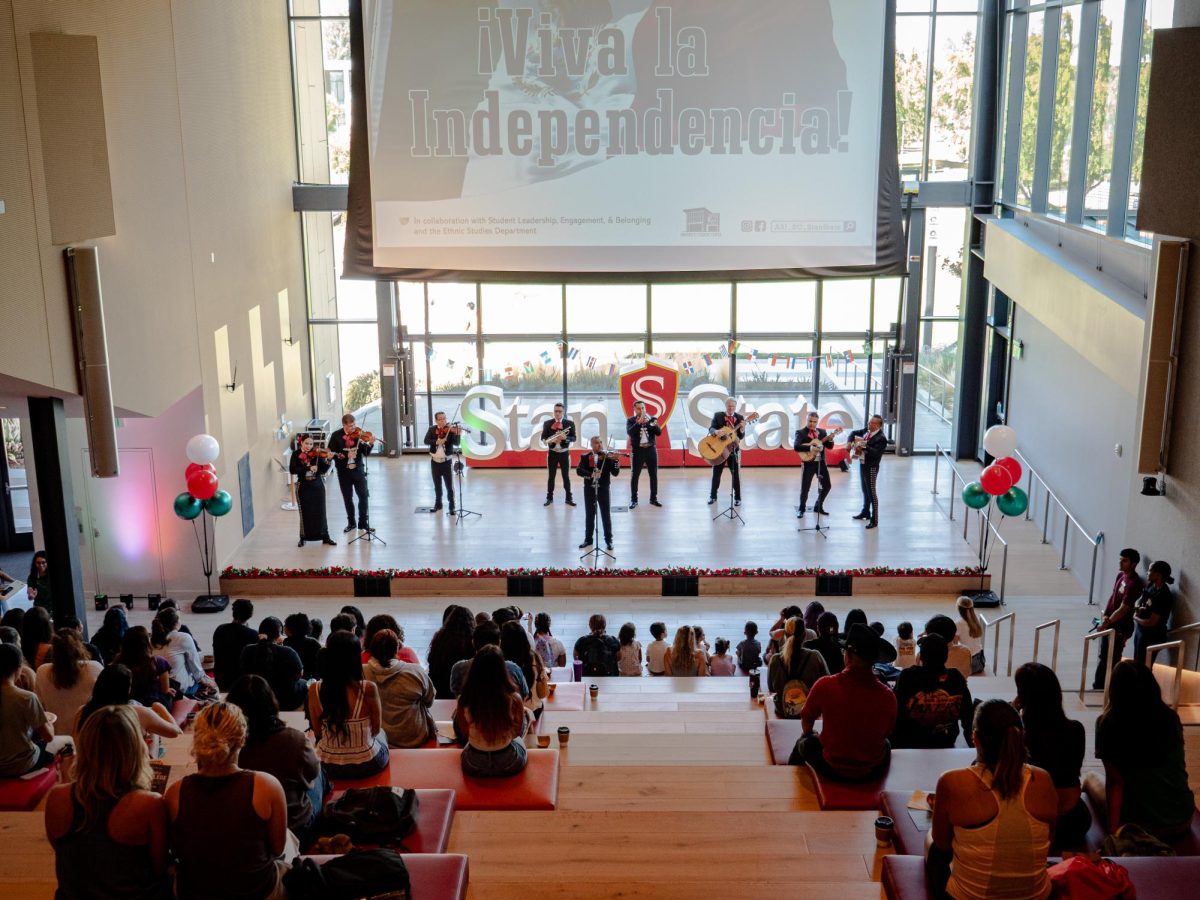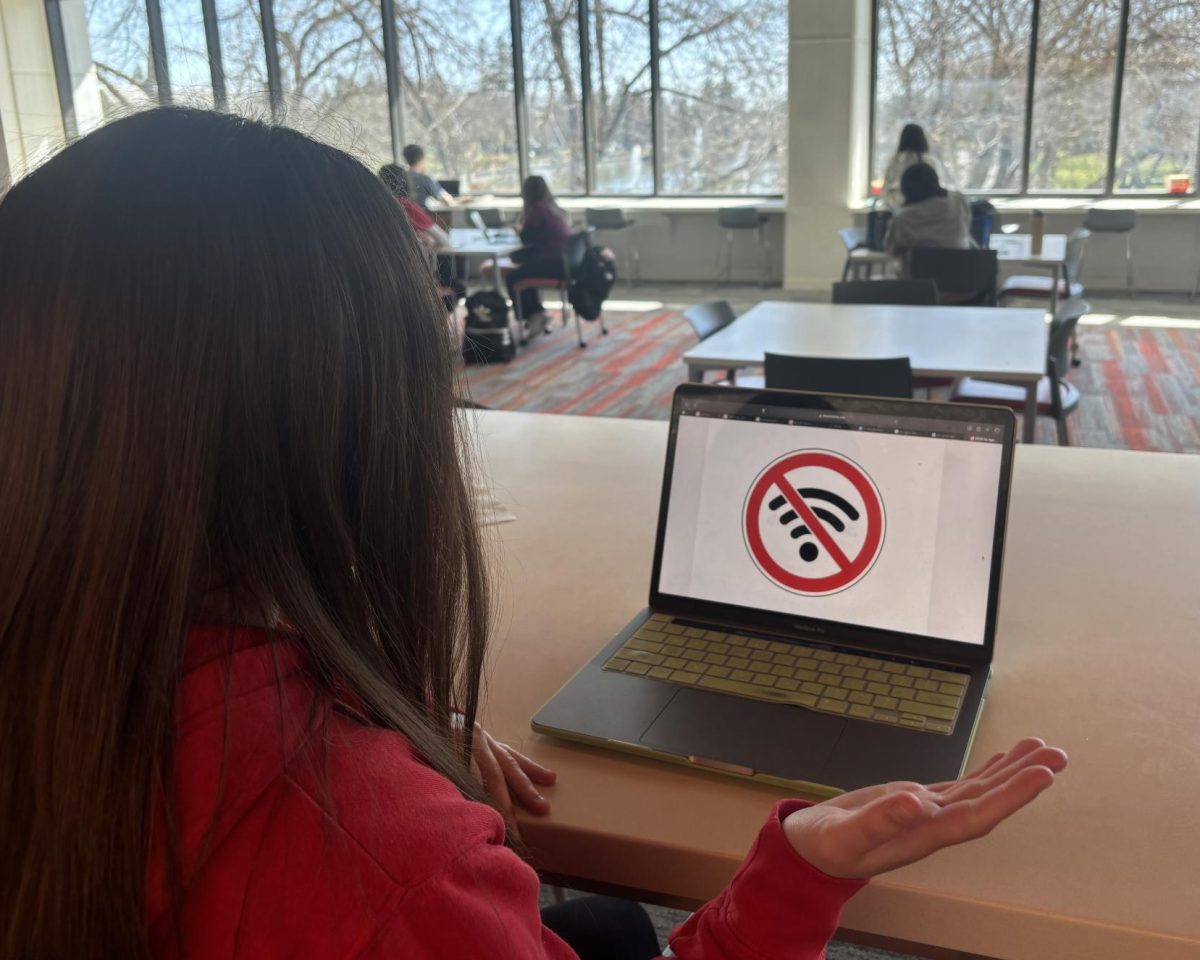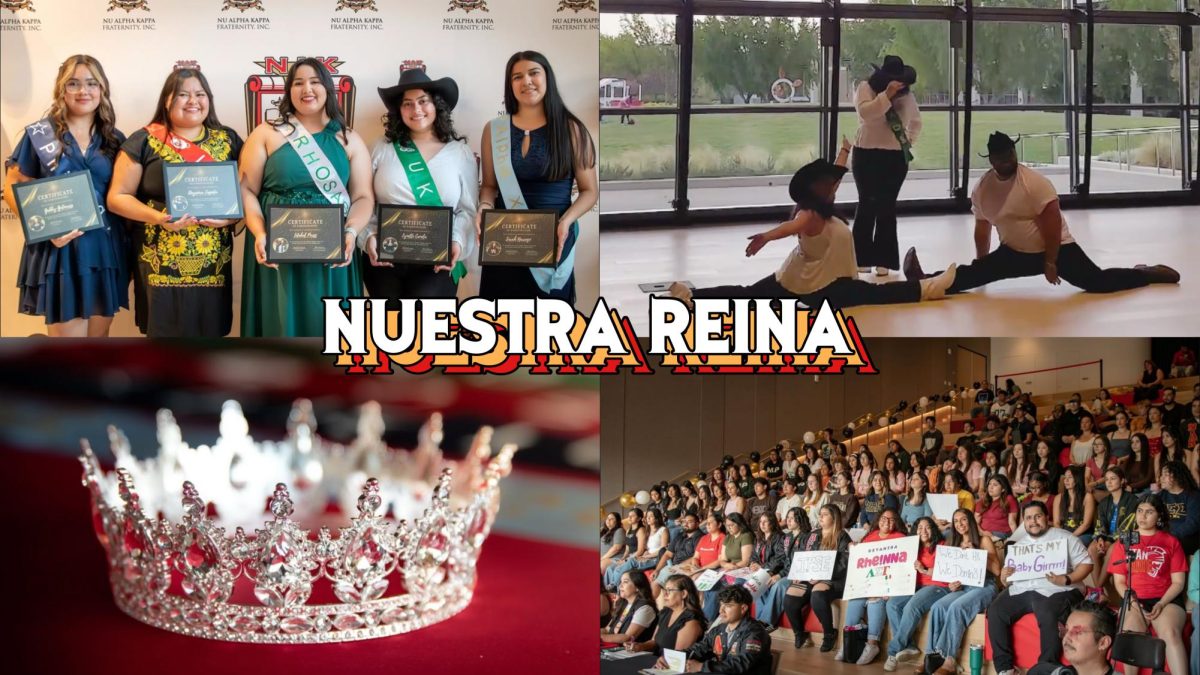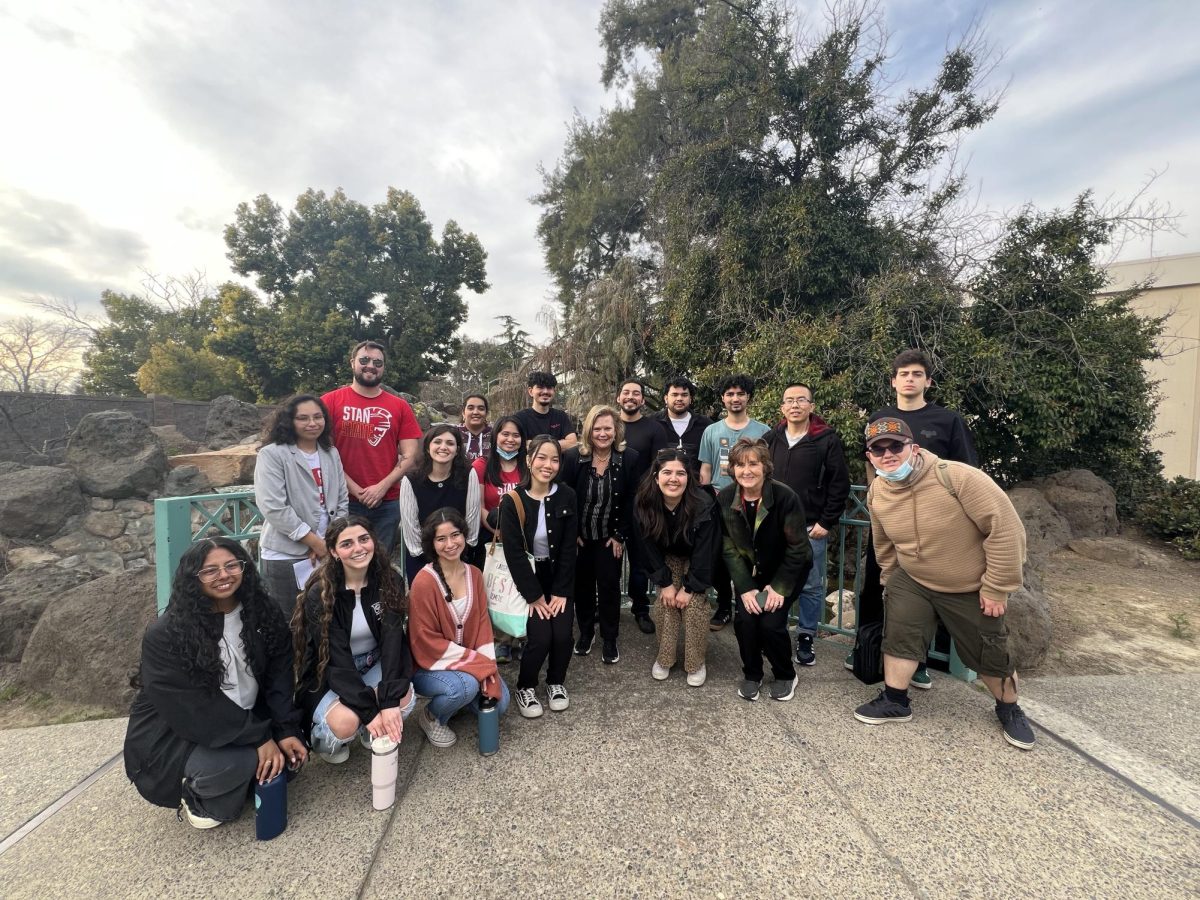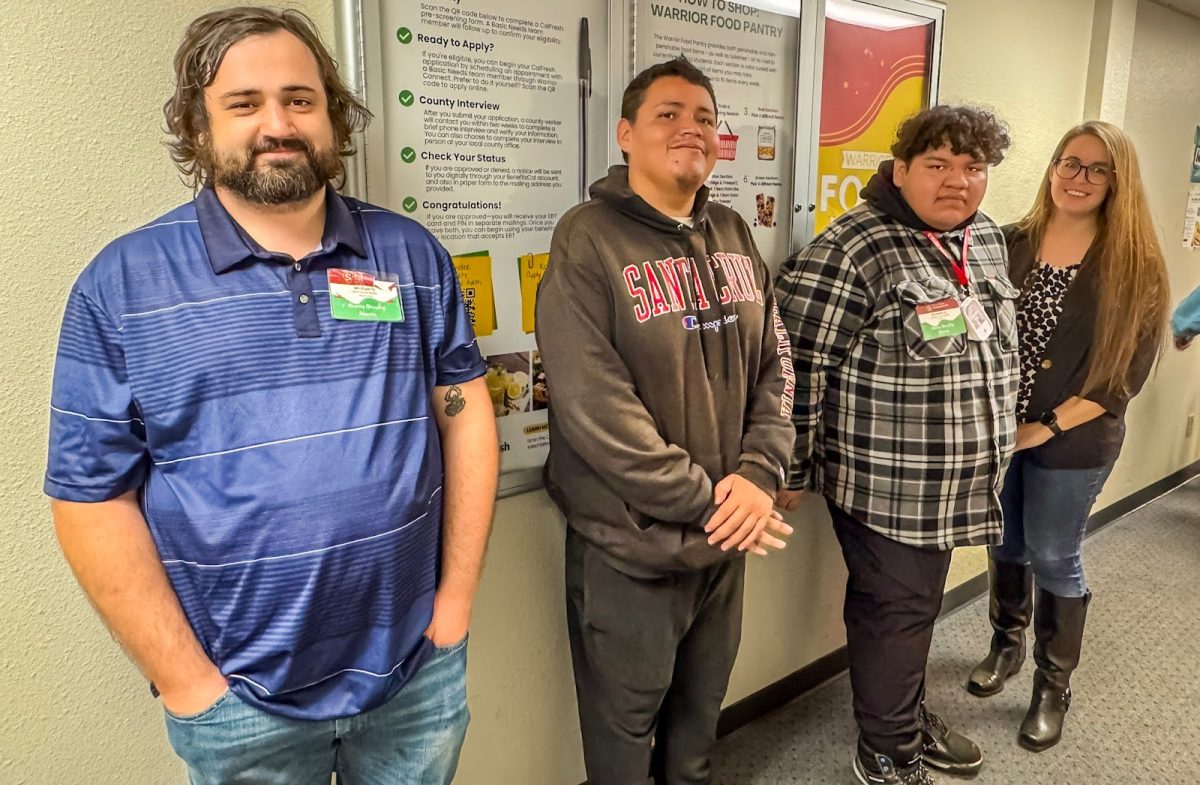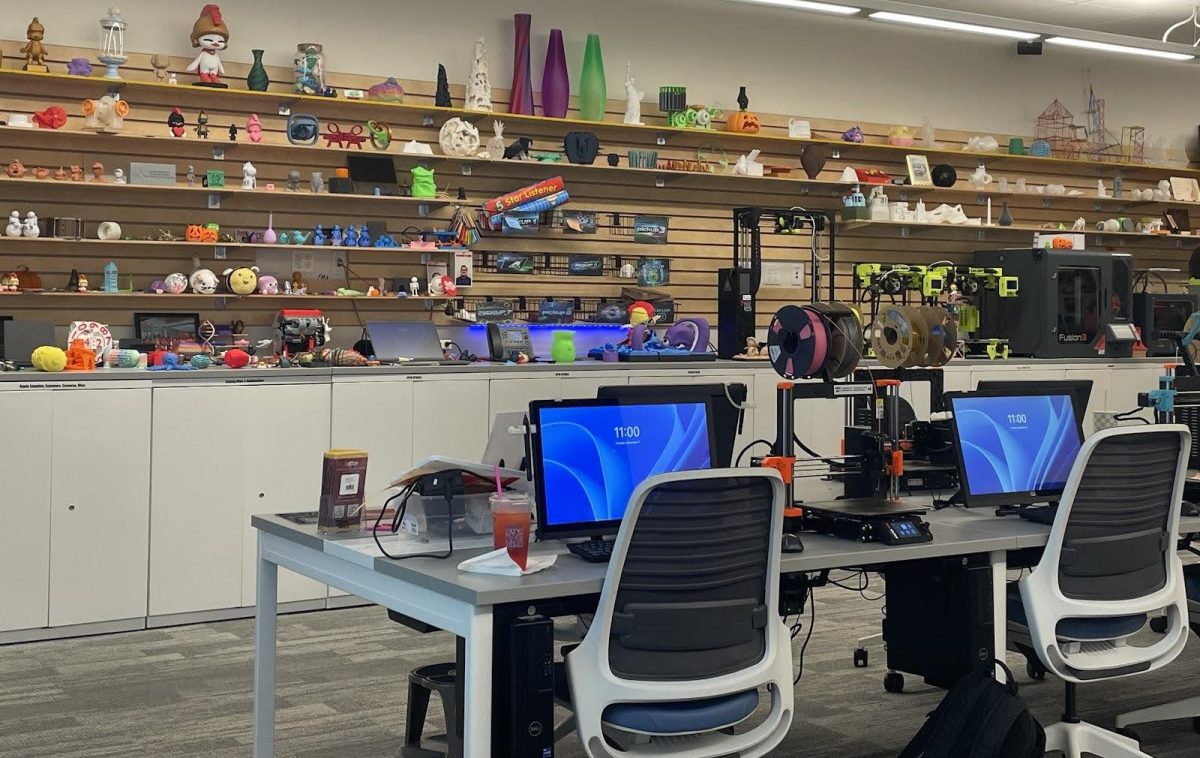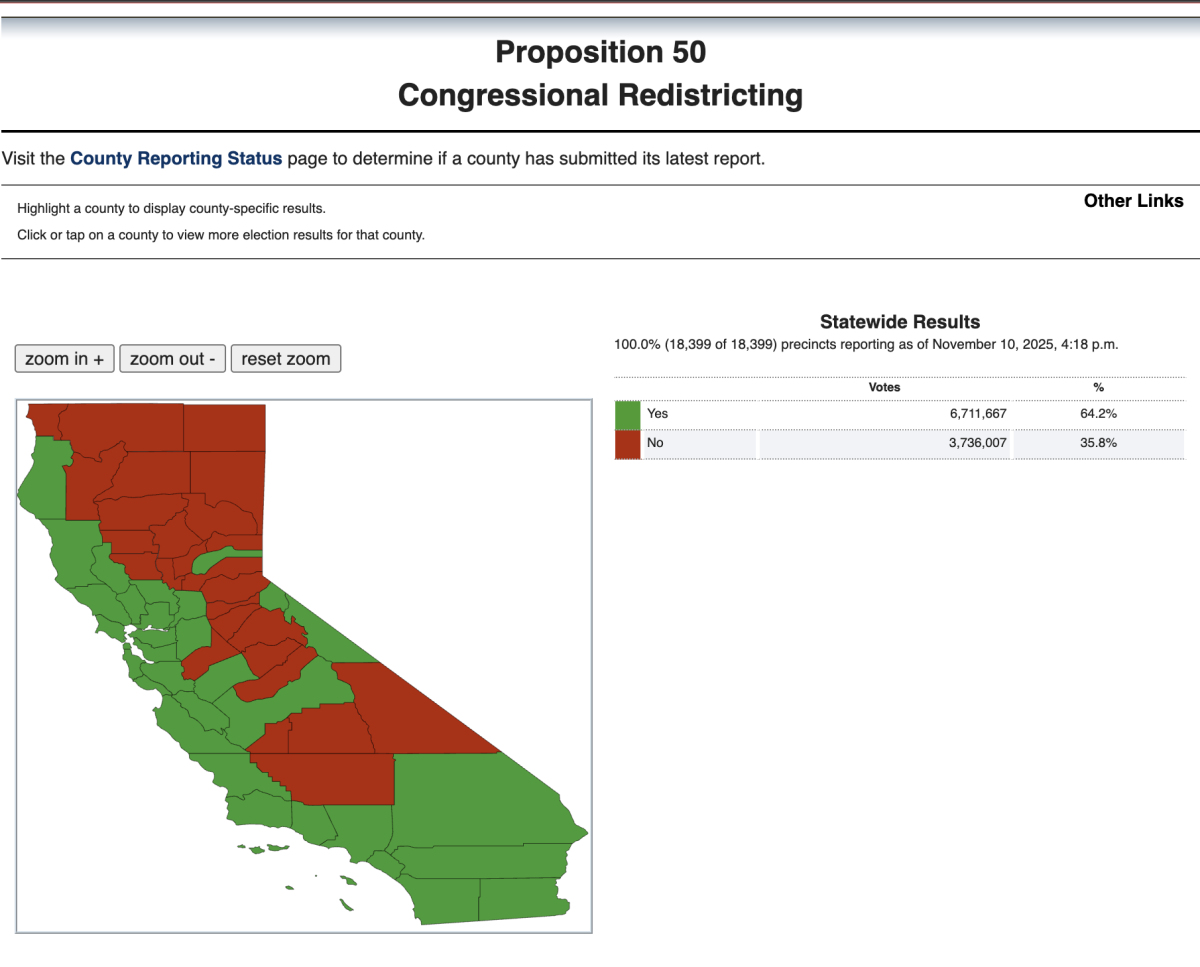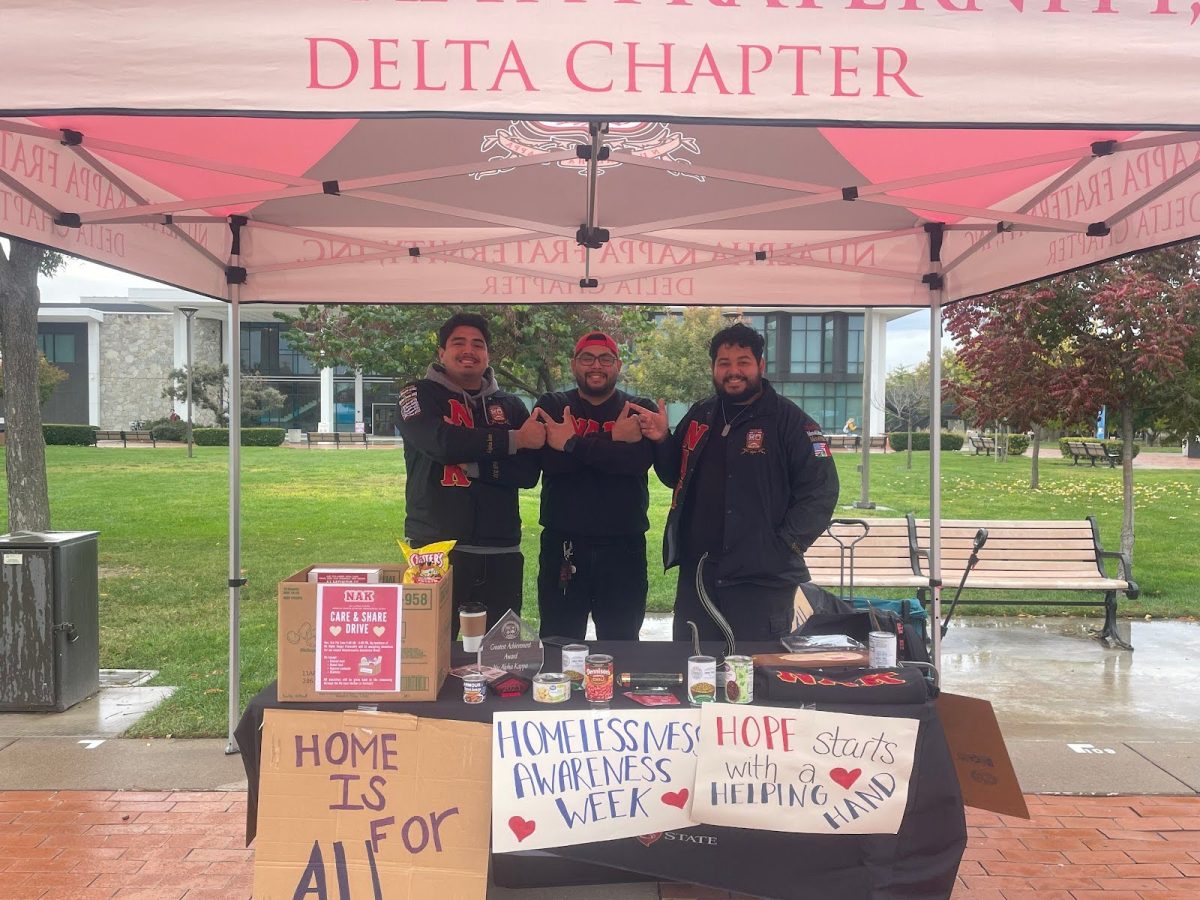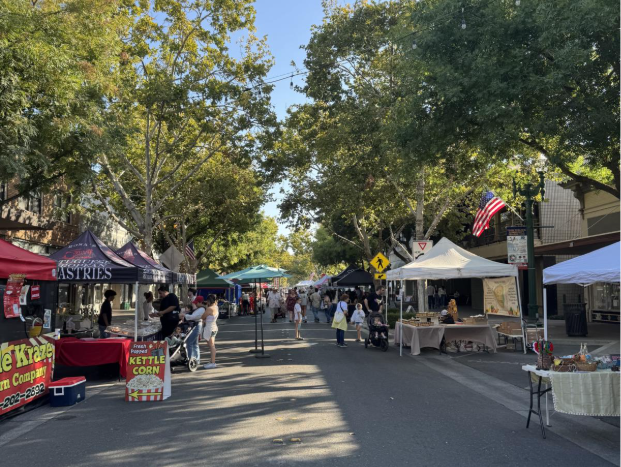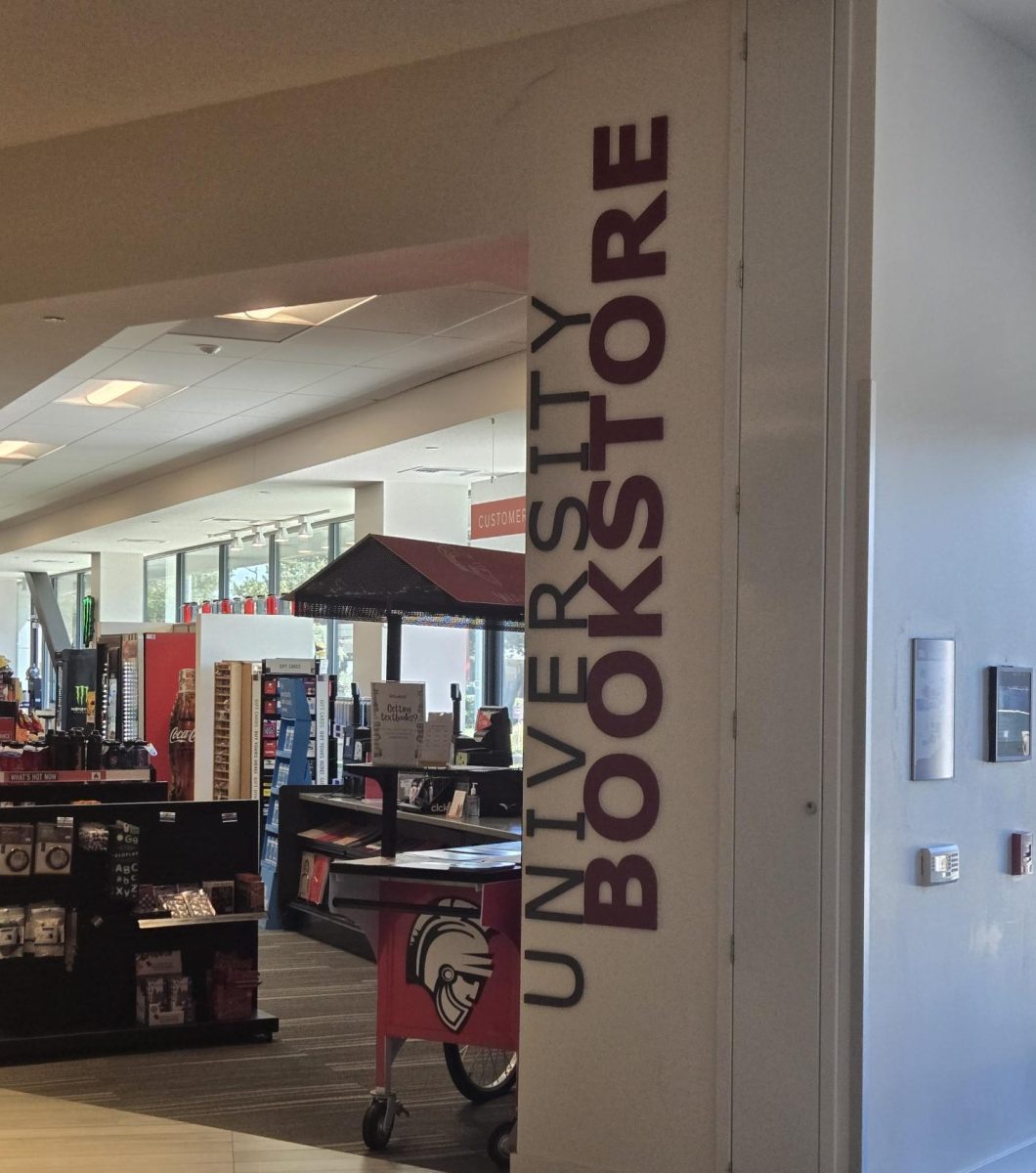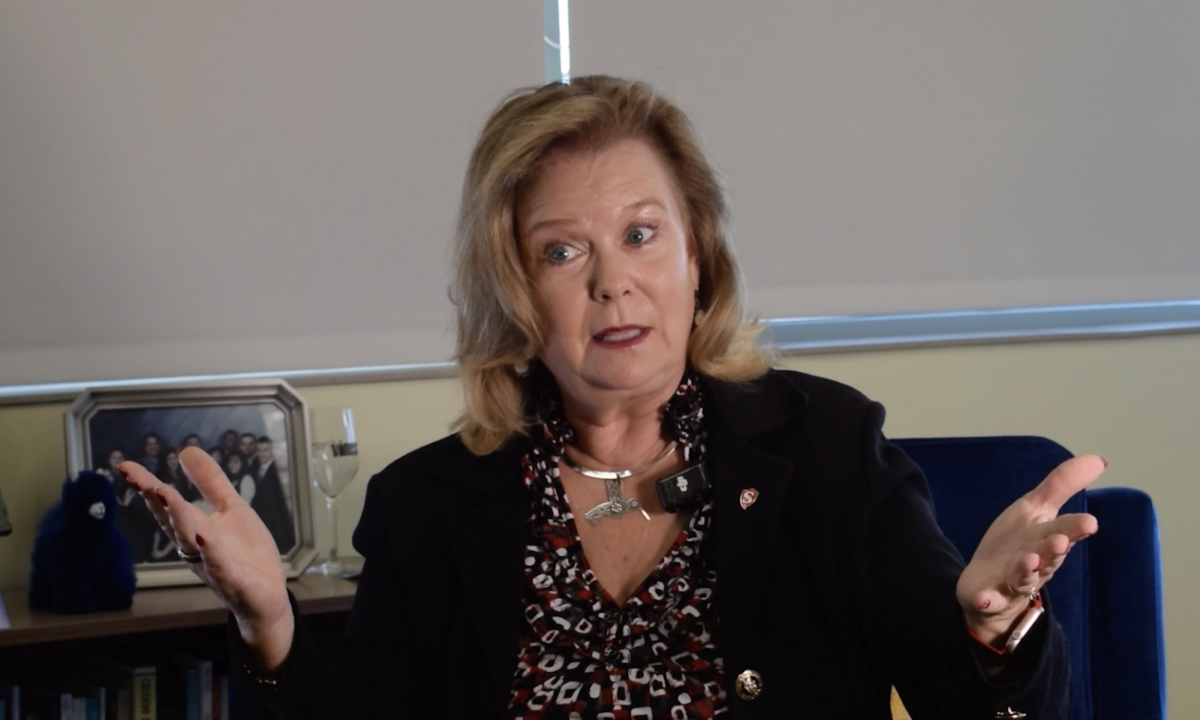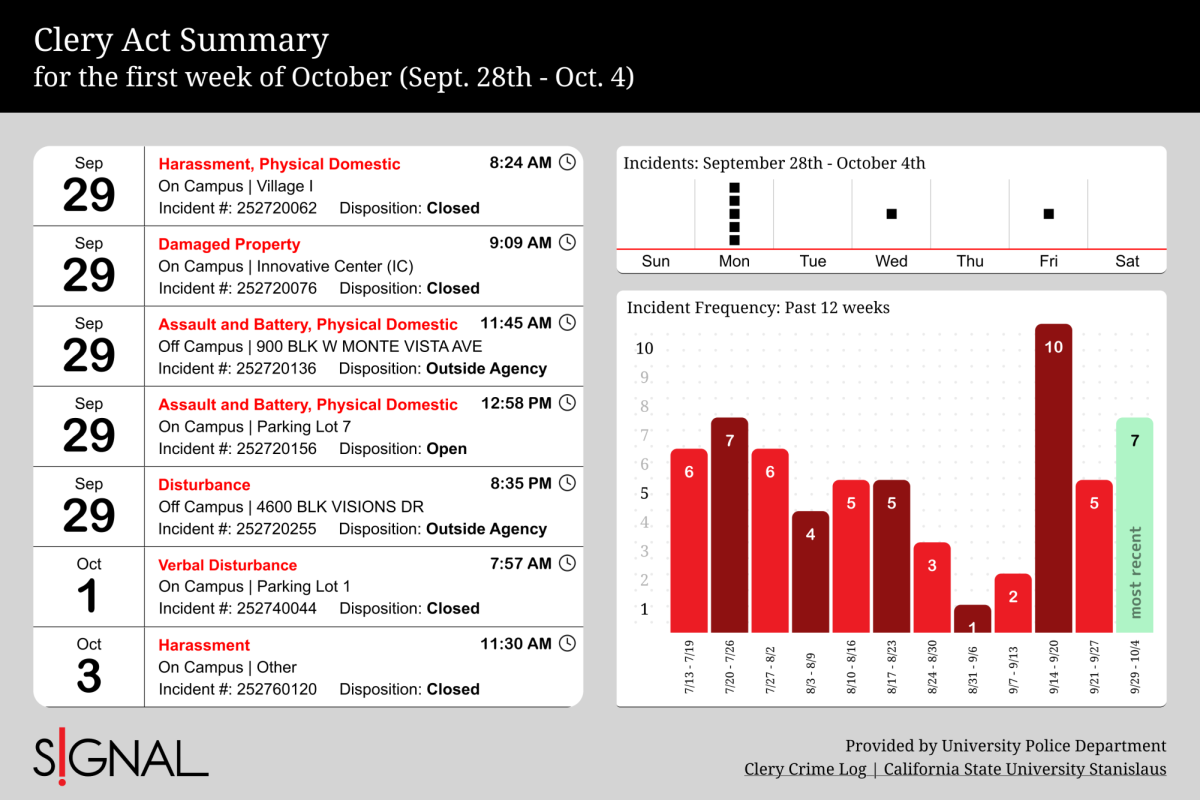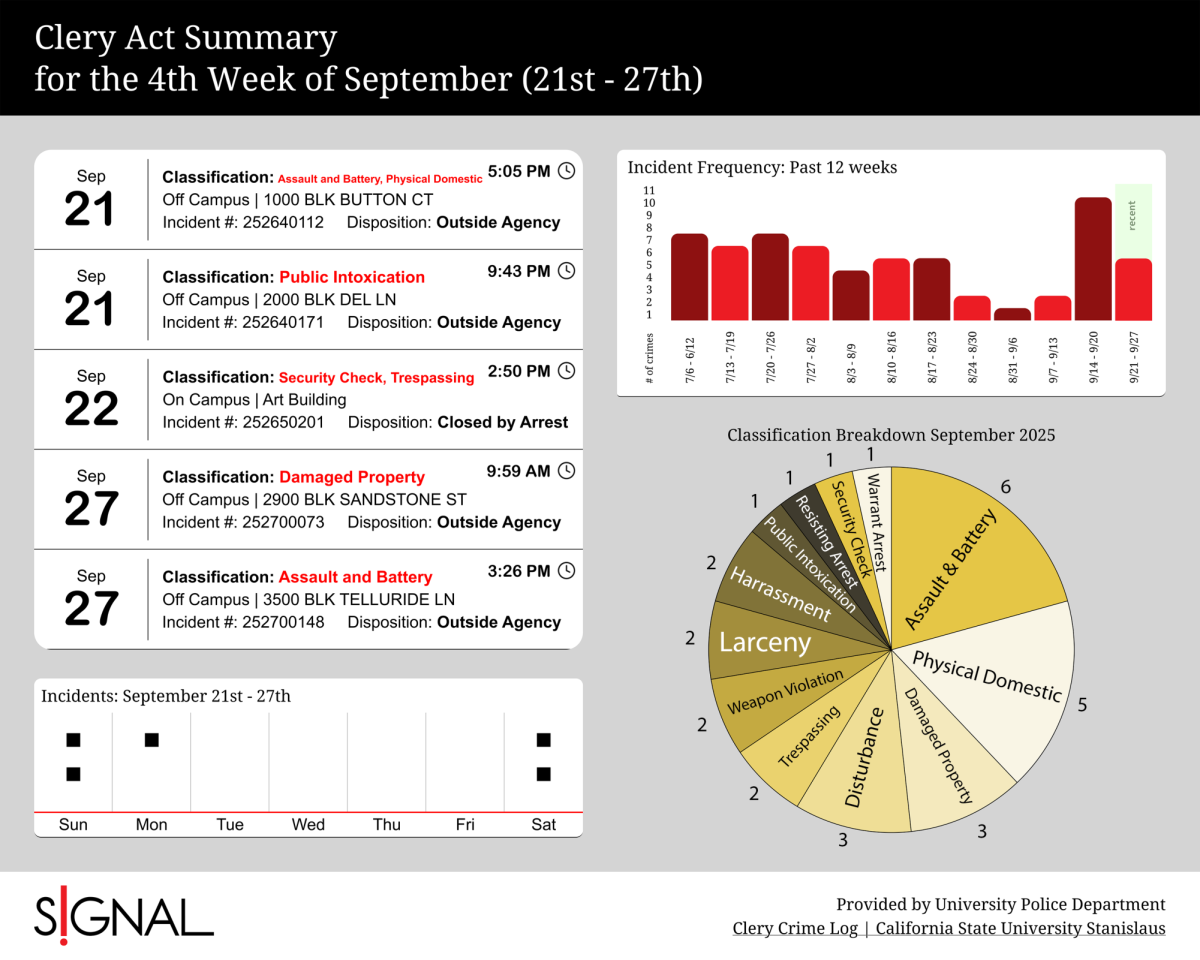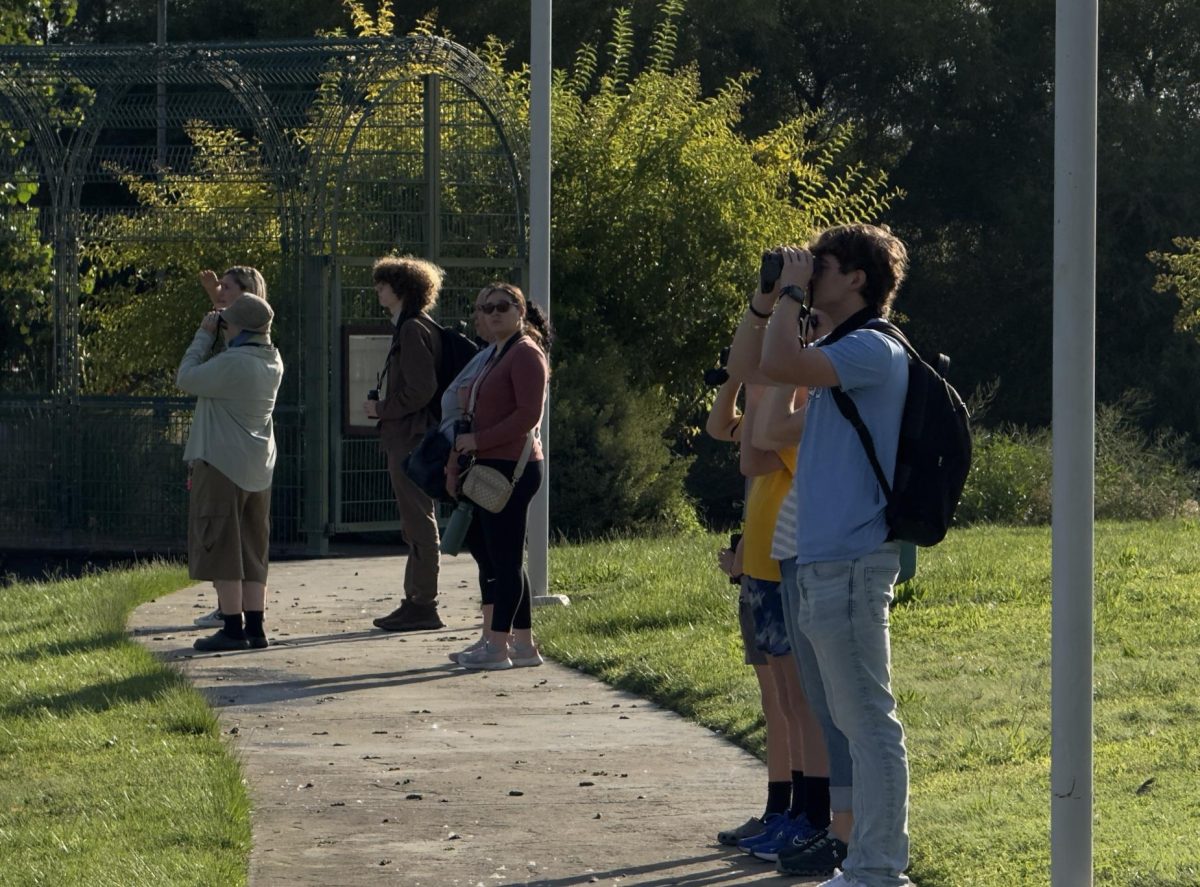On April 26 and May 10 from 10am to 12pm, Basic Needs will host a drive-up food distribution located at the University Circle to provide food for CSU Stanislaus students.
The food distribution is free and open to all students regardless of financial status.
All that is necessary to receive a box is your Warrior ID or ID number, to fill out an application for the United Samaritans Foundation, and to sign a form.
Filling out the application is only necessary for your first visit, but it has to be renewed every semester.
After their first visit, returning students will only be required to show their ID and provide a signature.
If students are unable to stop by during the specified time frames, family members are able to pick up a box for them as long as they know the student’s ID number.
Similarly, boxes are not limited to one per family, so siblings are welcome to each get their own box as long as they are both students.
Items found within the boxes will differ depending on what has been donated, but these boxes typically are full of non-perishables such as pasta, canned foods, and stews that are already pre-packaged.
While the items may vary, produce such as apples, bananas, cucumbers, and potatoes might be found within these boxes as well.
In the past few distributions, items such as eggs, juice, ground turkey, and even chicken tenders have also been included.
The event is intended to lift the stressful weight of food insecurity off the shoulders of students.
About 150 boxes are available to be distributed for each event and they are first come first serve.
Depending on how many boxes are distributed, if there are any boxes left over, students are also welcome to pick them up at the Warrior Food Pantry.
Alexa Aguirre Sanchez, CalFresh Coordinator, hopes these food distributions will help ease at least one aspect of students’ lives.
“I feel like there is a lot of negative stigma around getting a food box or visiting the Warrior Pantry, and it’s free stuff for students, so take advantage of it,” says Sanchez.
“It’s for students and it’s free. Our priority as basic needs is serving our students and meeting everybody where they’re at, whether it’s food insecurity, whether it’s a housing issue, whether it’s a financial issue, we are here to help and I think the food distribution kind of lightens that load a little bit with food insecurity,” says Sanchez.
Regarding the planning and organization that goes on behind the scenes for this event, they report it mostly consists of ordering and picking up produce from local grocery stores and putting together paperwork.
Since the distribution is in collaboration with the United Samaritans Foundation, they donate and drop off food items the morning of the event.
Dr. Renato Alvim, an associate professor and volunteer for the food distributions, notes that the mood for these distributions has been very positive.
“I have always noticed whether it’s staff, students, or professors who participate, people always have a really nice and positive attitude about it,” states Alvim.
When it comes to people who participate in the event he mentions that, “People are very appreciative of the resources and how people are willing to help.”
The food distribution is a form of aid similar to scholarships, financial aid, and so on. Its only purpose is to benefit students.
Alvim used the example of scholarships and how it is easy for students to accept scholarship money but difficult to accept free food, both are beneficial to students and both should be equally accepted.
“I think many of the students don’t even know that this kind of service exists,” mentions Alvim.
Paul Morgan, a lecturer and volunteer for the food distribution, thinks that if even one student is struggling with food insecurity, then it is one too many.
“Anyone needing any kind of food distribution means that there’s not enough being done,” Morgan says.
Morgan states that food insecurity has a number of effects on the ability to exist, from doing well in school to even just being comfortable at home.
“Accessing the basic needs program, in general, is to add stability on a thing that really does have a lot of spillover effects,” Morgan says, “It gives people those opportunities to hopefully have less anxiety, less hunger, and a little more stability in their life.”
Categories:
Basic Needs Offers Free Food Distribution for Students
Contributing Writer Brianna Linares
•
April 21, 2023
0
Donate to Signal
Your donation will support the student journalists of California State University, Stanislaus. Your contribution will allow us to purchase equipment and cover our annual website hosting costs.
More to Discover

